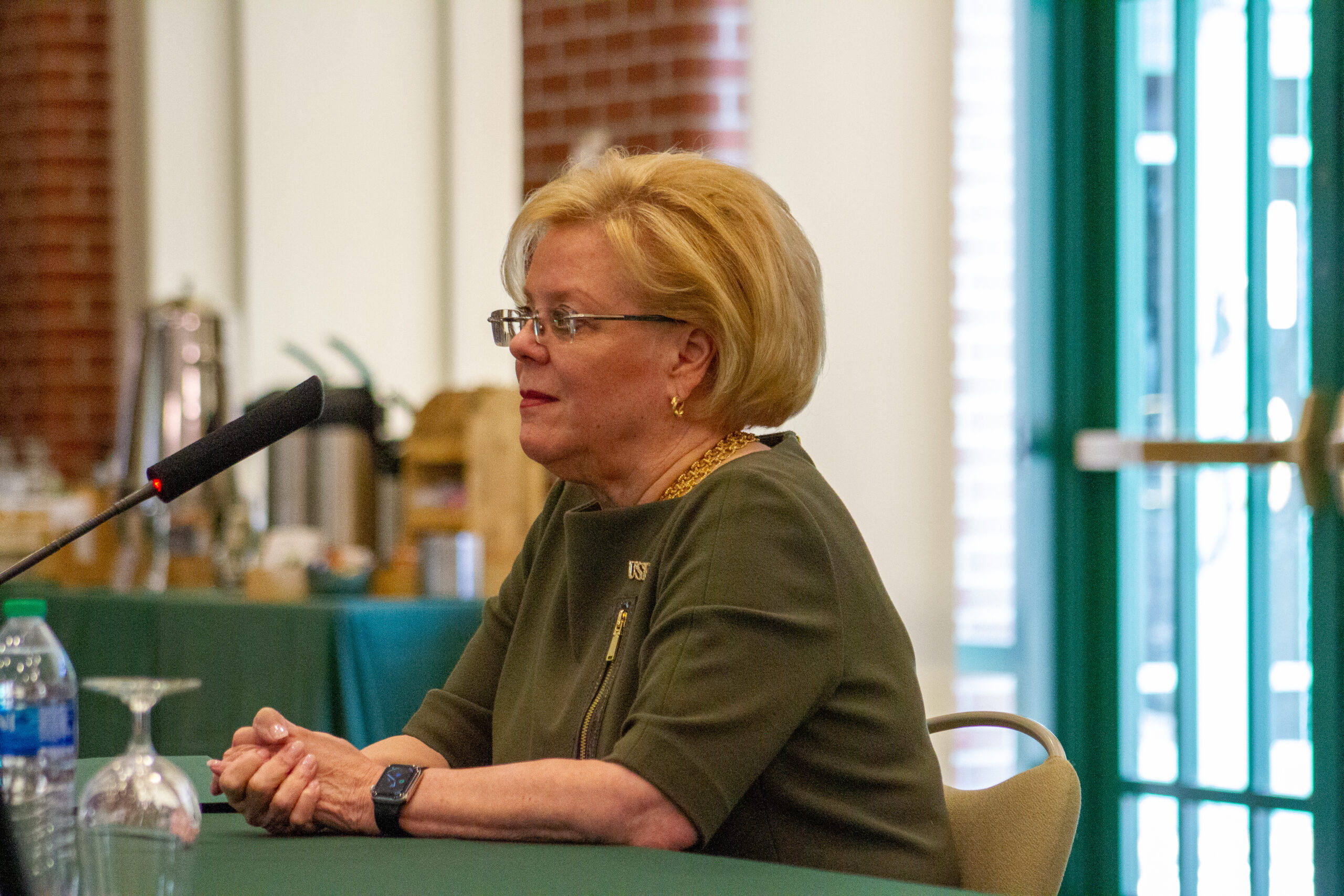Faculty predict improved communication and funding in Law’s presidency

Rhea Law’s appointment as the university’s eighth president evoked predominantly positive support from faculty, excited for her continued fiscal leadership, although some were concerned about her absence of an academic background.
Over the seven months of her interim presidency, Law has shown herself capable of leading the university, according to Dean of Students Danielle McDonald.
“She has proven herself to have the stamina for the job,” she said. “This is a taxing role, and I think that the great thing is that she knew what she was getting into, having now done [the interim presidency] as an introduction.”
Faculty Senate President Timothy Boaz said he had some concerns when Law was first appointed in August due to her lack of experience in an academic environment. As a result, he believed she was not prepared for the unique demands of the job.
Despite holding several leadership positions in the past, Law’s background revolves primarily around positions in law, having held the position of CEO and chair of the board at the law firm Fowler White Boggs. Law has no hands-on experience in the classroom, unlike other presidents such as Judy Genshaft.
Law has presented herself ready for the position through her leadership as interim president, according to Boaz. He said that with her skills in communication with the university faculty and her proficiency in fundraising, she portrays strong leadership skills.
“When she was first nominated as the interim president, I really didn’t know her,” Boaz said. “I feel like I have learned a lot about her in the last seven and a half months or so. I’ve been very impressed with her abilities.”
Similar to Boaz, Chair of the Department of History Brian Connolly said he was apprehensive concerning Law’s appointment due to her inexperience in academia.
“I think that there’s often been too much meddling in institutions, not just USF, but nationwide by non-academics, [who have] visions for [the university] that don’t really align with the academic mission of the university,” Connolly said. “I’m keeping an open mind.”
By prioritizing the input of academic leaders throughout the university, including faculty and deans, Law will be able to ensure that she makes decisions that benefit academic groups, Connolly said.
He said Law has demonstrated her leadership capabilities and willingness to listen to other voices in the university in order to guide her decisions, which will hopefully make up for her inexperience in academic positions.
In the past decade, faculty have struggled to be heard due to a “top-down” communication hierarchy, according to Connolly. Under a Law administration, he believes faculty voices will be given more precedent.
Comparatively speaking, Law has already done more than her predecessor to engage with faculty, according to Boaz.
She has attended all Faculty Senate meetings in her term while former President Steven Curall made a singular appearance only in the second half of his presidency, Boaz said.
Given her success in drawing more funding to the university, Law has also been applauded for her ability to manage the university’s budget, according to Boaz. The budget was difficult to maneuver and was threatened by budget cuts during Curall’s administration. He said with Law’s changes, it has become easier to navigate.
USF is also gaining historic new funding increases from the Legislature following Law’s advocacy for the university, according to a March 16 Tampa Bay Times article.
Compared to two years ago, Connolly said he has greater faith in the university effectively distributing the funding under Law’s leadership. He said he hopes throughout Law’s time as president, academic departments will see increased funding where he currently believes they are lacking.
“She’s going to be a presence at this university,” Boaz said. “I can see that she loves engaging the faculty. She loves engaging with students. She loves engaging with our community. And she’s got an enthusiasm for this university and our work that I think will be infectious.”







